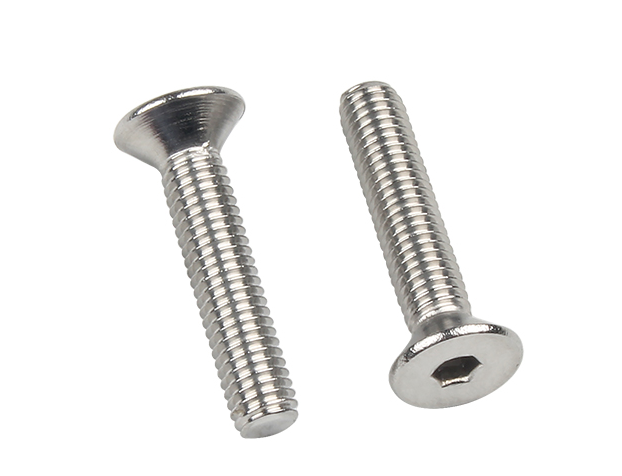

Understanding the Applications and Benefits of Weld Nuts in Modern Engineering
Nov . 26, 2024 14:58 Back to list
Understanding the Applications and Benefits of Weld Nuts in Modern Engineering
Understanding Weld Nuts A Key Component in Fastening Technology
Weld nuts are a specialized type of fastener that play a crucial role in modern manufacturing and assembly processes. They are designed to be attached to a variety of materials, typically metal, providing a strong, secure point for bolting and fastening other components together. The unique capabilities of weld nuts make them essential in automotive, aerospace, construction, and even furniture manufacturing industries. This article explores the features, applications, and advantages of weld nuts, providing a comprehensive overview of why they are an integral part of fastening technology.
What are Weld Nuts?
A weld nut is a type of nut that is designed for attachment to a base material via welding. They come in various shapes and sizes but typically have a flat or slightly recessed base with threads inside, allowing a bolt to be screwed in securely. The design often includes one or more alignment features to facilitate accurate positioning during the welding process. The most common type of welding used for attaching these nuts is resistance welding, where the nut is placed against the metal base and subjected to heat generated from an electrical current, melting the metal at the joint and forming a strong bond.
Applications of Weld Nuts
Weld nuts find themselves in countless applications across diverse industries.
1. Automotive Industry In automotive manufacturing, weld nuts are extensively used in vehicle body assembly, where they provide a secure fastening point for various components like chassis parts, engine mounts, and interior fixtures. The ability to integrate these nuts during the production process streamlines assembly and ensures the integrity of the vehicle’s structure.
2. Aerospace The aerospace sector requires high-strength materials and fasteners due to the demanding conditions that aircraft face. Weld nuts are commonly employed in the assembly of airframes, where weight savings and structural integrity are paramount. Their reliability ensures that critical components remain securely fastened during flight.
3. Construction In construction, welded connections are commonplace. Weld nuts are often used in the assembly of steel structures, machinery, and heavy equipment. They enable quick assembly and disassembly, facilitating maintenance and repairs while ensuring that structural elements remain securely anchored.
weld nuts

4. Furniture Manufacturing The furniture industry also utilizes weld nuts, particularly in metal-based furnishings. They offer a clean and effective way to join pieces without the need for visible fasteners, enhancing the aesthetics of the final product.
Advantages of Weld Nuts
Weld nuts provide several advantages that make them a preferred choice among engineers and manufacturers
1. Strength and Stability Since weld nuts are welded directly to a surface, they offer a robust fastening solution. The strong bond formed through welding ensures that the nut maintains its position and does not loosen over time, even under stress.
2. Space Efficiency Weld nuts can be installed in tight spaces, which is particularly beneficial in applications where space is limited. This makes them ideal for various custom assemblies that may not allow for traditional fastening methods.
3. Reduction in Assembly Time When incorporated into the production line, weld nuts can significantly reduce assembly times. The ability to fit fasteners during the welding process means that additional steps for attaching nuts can be eliminated.
4. Cost-Effective The efficiency and reliability of weld nuts contribute to overall cost savings. Fewer components and faster assembly times lead to decreased labor costs and improved production efficiency.
Conclusion
Weld nuts are an indispensable part of the fastening landscape in today’s industrial world. Their unique design, combined with the advantages they offer, makes them highly suitable for a multitude of applications. As industries continue to evolve and innovate, the demand for reliable and efficient fastening solutions like weld nuts is expected to grow. Understanding their applications and benefits is crucial for engineers, manufacturers, and anyone involved in the design and production of assembled components. In the realm of fastening technology, weld nuts stand out as a testament to the marriage of simplicity and strength.
Latest news
-
High-Strength Hot Dip Galvanized Bolts - Hebei Longze | Corrosion Resistance, Customization
NewsJul.30,2025
-
Hot Dip Galvanized Bolts-Hebei Longze|Corrosion Resistance&High Strength
NewsJul.30,2025
-
High-Strength Hot-Dip Galvanized Bolts-Hebei Longze|Corrosion Resistance&High Strength
NewsJul.30,2025
-
Hot Dip Galvanized Bolts-Hebei Longze|Corrosion Resistance&High Strength
NewsJul.30,2025
-
Hot Dip Galvanized Bolts - Hebei Longze | Corrosion Resistance, High Strength
NewsJul.30,2025
-
High-Strength Hot Dip Galvanized Bolts-Hebei Longze|Corrosion Resistance, Grade 8.8
NewsJul.30,2025

